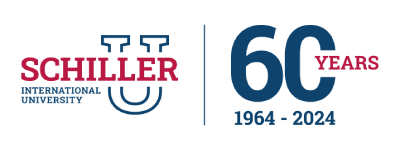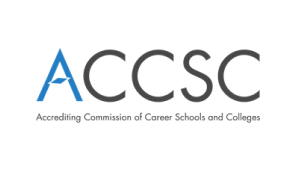For many international students, the decision to study abroad and enroll in a US-accredited degree comes with excitement and a touch of fear. The question “If I earn a US degree, will it be valued in Europe, or other countries?” often lingers.
Europe is home to centuries-old universities, a unified higher education system, and strict professional licensing standards. Yet, American college degrees are widely recognized across Europe, provided they come from accredited institutions and meet certain equivalency standards.
Understanding how this recognition works can help you plan confidently for an international career and ensure that your degree holds its value wherever you go.
How American Degrees Are Viewed in Europe
Europe does not have a single recognition rule for foreign degrees. It varies from country to country. But most nations follow a shared framework under the Bologna Process, which established comparable academic standards for higher education across 49 European countries.
While US degrees are not automatically equivalent to European ones, accredited American universities are often recognized by the European Network of Information Centres (ENIC) and National Academic Recognition Information Centres (NARIC), national agencies that evaluate international qualifications. These agencies assess the institution’s accreditation status, course length, and academic rigor before determining its equivalency.
For example, a four-year US bachelor’s degree is typically comparable to a three-year European bachelor’s under Bologna standards, though the credit systems differ between US semester credits and the European Credit Transfer and Accumulation System (ECTS). Similarly, American master’s degrees are widely accepted when the awarding university is regionally accredited.
In short, yes. American degrees are valued in Europe, but formal recognition depends on accreditation, program type, and purpose (whether academic or professional).
Benefits of American Education for European Careers
Accreditation is the first thing European evaluators look for. In the US, accreditation, recognized by the US Department of Education, signals institutional quality and legitimacy.
When European employers or universities see that a degree comes from a regionally accredited American institution, they often treat it as equivalent to a European qualification.
It is important to note that professional licensing in fields like law, medicine, or engineering can be more complex. These sectors often require country-specific certifications or revalidation through European professional bodies. For example, an American-trained nurse or lawyer might need to meet additional national criteria before practicing in Germany or France.
Still, in fields such as business, computer science, hospitality, international relations, and marketing, American degrees are typically well recognized, especially when the program emphasizes practical experience and international exposure.
Why American Education Appeals to European Employers
Historically, American education has been credited with fostering critical thinking, innovation, and adaptability. These holistic skills align well with the evolving needs of Europe’s job markets.
- Employers across Europe appreciate and actively seek graduates who can find a way to bridge people from diverse cultures, communicate globally with various stakeholders, and think independently to solve complex problems. The US liberal arts model, with its combination of theoretical and applied learning, stands out for precisely these qualities.
- In countries such as Germany, US graduates find strong opportunities in technology and engineering. In Spain, sectors like tourism, marketing, and international business value global perspectives, while in France, the management and hospitality fields often welcome American-trained professionals.
- European employers are also increasingly looking for graduates who are comfortable working in multicultural teams and across English-speaking environments, another advantage of a US-style education.
Challenges and Considerations
While recognition is broad, it is not automatic. There are a few considerations you should keep in mind when applying for US-accredited degrees:
- Terminology differences: US degrees use 'majors' and 'credits,' while Europe uses 'modules' and the European Credit Transfer and Accumulation System (ECTS).
- Length of programs: Many European bachelor’s degrees last three years, while US ones might take four. This does not imply inequality, but equivalency evaluations may adjust for it.
- Professional licensing: Some sectors, especially healthcare, architecture, and education, require national credentials or postgraduate revalidation.
- Documentation: You may need to provide course syllabi, transcripts, and proof of official accreditation for European evaluation agencies after graduation.
Despite these nuances, most internationally accredited American programs experience no difficulty gaining academic and professional recognition in the European Union.
Schiller’s Intercampus Mobility Program
If you want the best of both worlds, an American degree that seamlessly fits within Europe’s education framework, Schiller International University offers a unique intercampus mobility program.
Schiller is an American-accredited university with campuses in Spain, France, Germany, and the United States, allowing you to study under the same American academic system while gaining deep European experience.
This means you can start your degree in Europe, transfer between campuses, and graduate with a US degree recognized under the Bologna Process through established equivalency mechanisms. Combined with local internships and multilingual exposure, it will help you establish a strong foundation for European employability.
Career Opportunities in Europe
The value of an American degree is often reflected in how employers perceive it: as a marker of global readiness. Some European industries especially value US degrees.
Technology and Engineering (Germany, Ireland): US programs emphasize innovation and project-based learning.
Finance and Business (Luxembourg, Netherlands): Graduates are trained in analytical and leadership skills that match multinational work cultures.
Tourism and Hospitality (Spain, France): American programs’ focus on experiential learning aligns well with Europe’s service industries.
NGOs and International Relations (Brussels, Geneva): The global perspective of US education complements Europe’s diplomatic and policy environment.
Graduates from American universities, including those who studied in US-accredited programs within Europe, often are better prepared for cross-border roles, international companies, and global start-ups.
Tips for Maximizing the Value of Your American Degree in Europe
To ensure your American degree is recognized and respected in Europe, keep these strategies in mind:
- Verify Accreditation: Make sure your institution is regionally accredited in the US and recognized by the US Department of Education.
- Check Equivalency Early: Contact your target country’s ENIC-NARIC center to confirm degree recognition.
- Gain European Experience: Internships, study-abroad semesters, and European campus transfers strengthen your employability.
- Pursue Supplementary Certifications: Especially in regulated industries, local or EU-recognized credentials can enhance career prospects.
- Leverage Alumni Networks: Get in touch with university career services and alumni who have worked on European markets.
By combining an American-style education with European exposure, you can position yourself as a globally adaptable professional ready to succeed in diverse job markets.
When earned from accredited institutions and supported by international experience, American college degrees are valued in Europe. Europe values innovation, critical thinking, and leadership American education cultivates.
Explore Schiller's undergraduate and postgraduate programs in Madrid, Paris, and Heidelberg that combine American accreditation with European access to prepare you for careers that truly span continents.
FAQs
Q1. Are American college degrees recognized in all European countries?
Answer: Not automatically, but widely, particularly in countries participating in the Bologna Process. Each country’s ENIC-NARIC center assesses US degrees for equivalency.
Q2. How does accreditation affect the value of a US degree in Europe?
Answer: Accreditation is important as degrees from accredited US universities are most likely to be recognized by European employers and universities.
Q3. Which European industries value American degrees the most?
Answer: Technology, finance, hospitality, and international relations sectors value innovation and global mindset fostered by American-style education.
Q4. Do I need additional certifications to work in Europe with a US degree?
Answer: No, in most fields. But for regulated professions like medicine or law, you may need national certification or licensing.
Q5. How does Schiller International University help students prepare for European career opportunities?
Answer: Schiller offers US-accredited education across its European campuses in Spain, France, and Germany. Our programs combine American academic quality with European work experience, language learning, and professional networking.

 Request information
Request information









